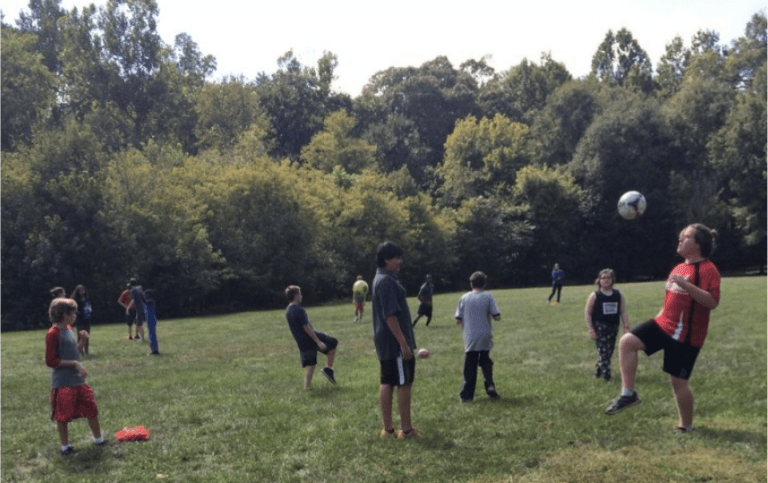Field Notes: Being Ignored
For the last six weeks of the year, the school was humming, inside and out. JC cases were down, enrollments up. New students have enlivened social groups and shifted patterns of activity on campus. Several newer students spent weeks recording in the music studio. Six outstanding students have defended their theses and graduated in June. While upswings at Fairhaven School are always tempered by life’s complexities, in late spring, the red-eyed vireos have begun their daylong songs in the treetop canopy, and everything at Fairhaven has been unfolding with what feels like an extra dash of grace. Crossing the parking lot to go home in late May, I called out to three passing boys: “Have a great weekend!” No response came. I wasn’t far away, and I had raised my voice, but nothing.
Of course not. I had been watching them emerge from the edge of the forest, no doubt after climbing the gentle rise above the bend in the stream where water falls that the students have named “Paradise.” They had then crossed the field abreast, talking the whole way about something very important to them, gesticulating with their hands from time to time. One carried a stick, waving it now and again. Their clothes featured the typical riot of colors Fairhaven boys seem to prefer. Two were barefoot, and one of these did a few of his trademark leaps to help emphasize his points. As we neared one another, our distance narrowed, so I could hear their voices but not the words. If play and engagement can attain urgency, they embodied this state, as if encased in their own world. My heartfelt goodbye, then, went unnoticed. Seldom has being ignored felt better.

A high school dropout, the late poet Jack Gilbert might have appreciated the immediacy of these ephemeral episodes at Fairhaven School. In his book The Great Fires, he mourns the loss of his wife Michiko, and in this poem he captures the great value of the little things, of the everyday moments in life:
Highlights and Interstices
We think of lifetimes as mostly the exceptional
and sorrows. Marriage we remember as the children,
vacations, and emergencies. The uncommon parts.
But the best is often when nothing is happening.
The way a mother picks up the child almost without
noticing and carries her across Waller Street
while talking with the other woman. What if she
could keep all of that? Our lives happen between
the memorable. I have lost two thousand habitual
breakfasts with Michiko. What I miss most about
her is that commonplace I can no longer remember.—Jack Gilbert
How do we chronicle what happens at Fairhaven? For a long time, when people have asked about the school, I sometimes said “swimming upstream,” since Fairhaven’s approach can induce resistance and misunderstanding. After witnessing these boys in a small, ordinary moment at Fairhaven—Gilbert’s “commonplace”— I realize that I am describing my experience of explaining the school when I use this metaphor, not the experience of the students here. Furthermore, when I reflexively say “swimming upstream,” it’s when talking to people less familiar with the school. On the other hand, when describing what I observe among the people at the school, the far more suitable stream metaphor is “going with the flow.” To honor the magnificent ordinary here, maybe it’s time to ditch the language of struggle altogether, opting instead for the beauty both of being ignored and of going with the flow.
Mark McCaig
June, 2019


